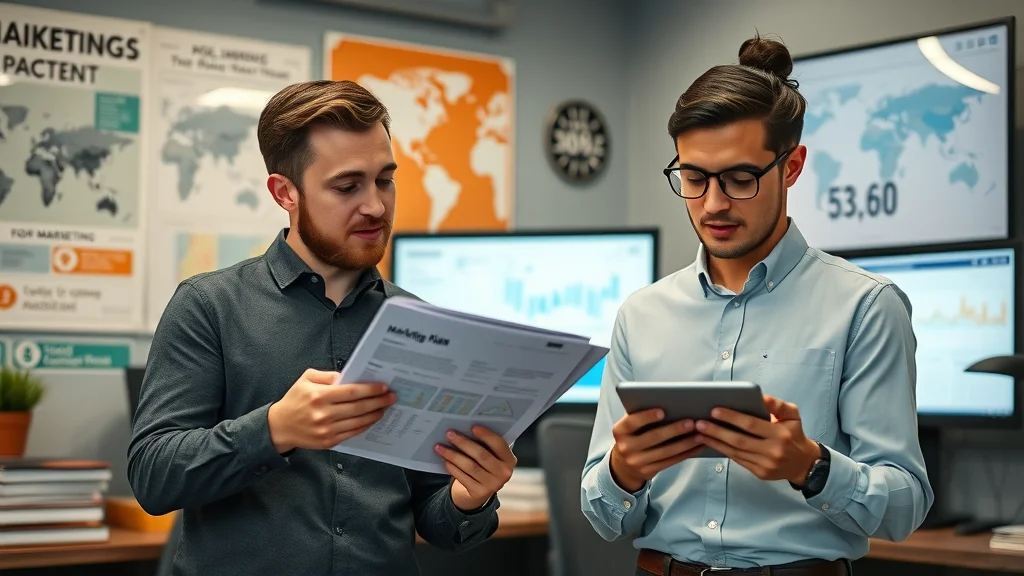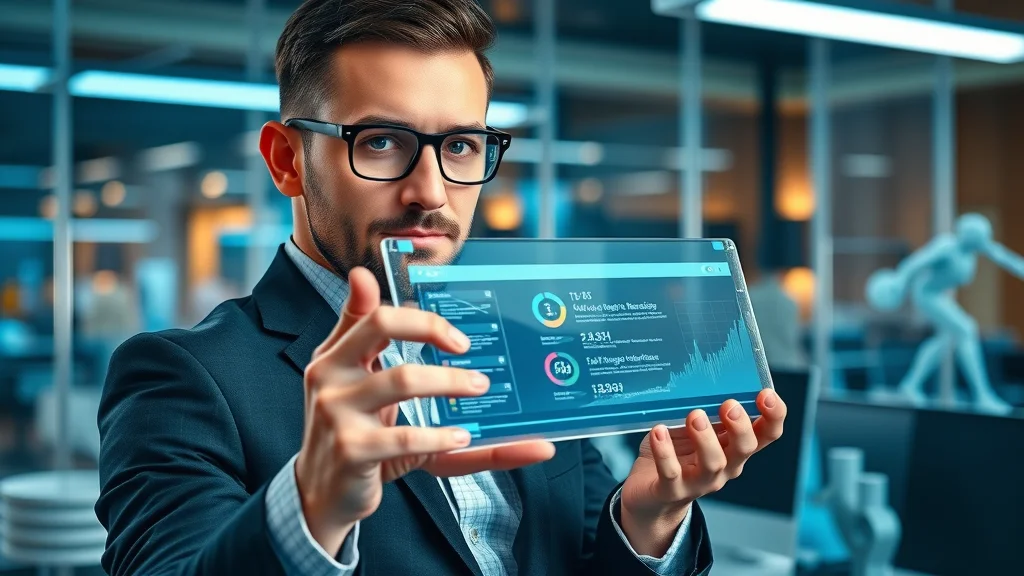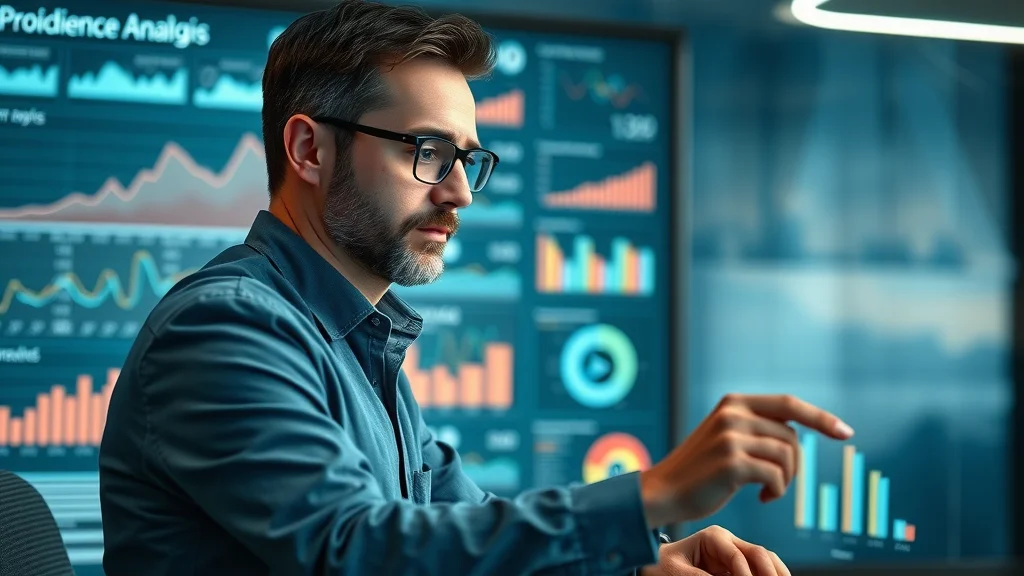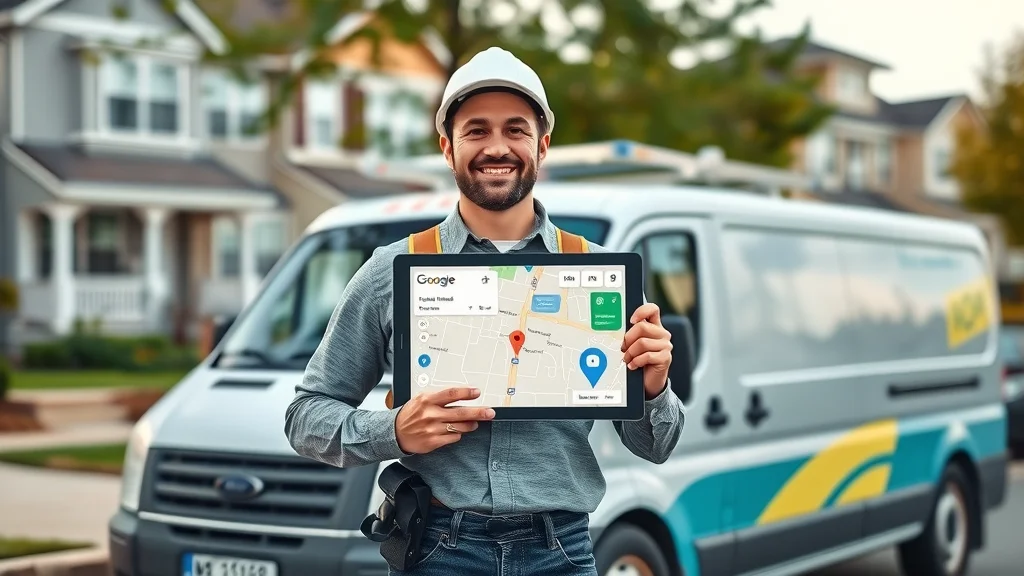Did you know? Marketers using AI report saving over 20 hours each week on campaign execution, content creation, and analytics—reclaiming valuable time once lost to manual tasks. This isn’t just a trend; it’s a revolution sweeping the marketing world. In this AI marketing case study, you’ll discover how artificial intelligence, including game-changing generative AI, rewires daily marketing workflows, trims hours off busy schedules, and visibly improves ROI. Whether you’re curious about the impact on content creation or looking for practical automation tips, this deep dive will illustrate what’s possible when marketing strategy and AI technology join forces.
A Surprising Shift: How AI Transforms Marketing Case Studies with Efficiency
The AI marketing case study at the heart of this article reveals a remarkable evolution in the world of marketing campaigns. No longer bogged down by repetitive manual work, marketers can now unleash creativity and focus on strategic decision-making. With advanced AI tools and platforms, agencies and in-house teams alike enjoy seamless automation and optimized campaign management, as AI swiftly analyzes vast amounts of data, generates engaging content, and predicts audience behavior. This shift not only saves time but measurably boosts conversion rates, campaign output, and overall marketing ROI.

- 61% of marketers use AI to personalize campaigns at scale, according to HubSpot.
- Generative AI can reduce content creation time by up to 60%—from brainstorming to final draft.
- AI automates up to 80% of data analysis tasks, delivering real-time reporting and freeing up creative resources.
- Companies report a 2X increase in campaign frequency after integrating AI tools.
- AI-driven customer service chatbots resolve 90% of routine queries instantly, eliminating after-hours delays.
- These AI technologies change marketing workflows by taking over repetitive tasks, improving campaign targeting, and delivering actionable insights—making marketing more agile, data-driven, and responsive than ever before.
What You’ll Learn from this AI Marketing Case Study
- The real-world impact of AI in marketing and content creation
- How predictive analytics turbocharges data-driven marketing campaigns
- Practical steps for using generative AI to automate workflows
- Key tools and platforms that save time and increase ROI in marketing strategy
- Tangible results in engagement, conversion rate, and campaign volume
- Actionable automation tips for marketers of every skill level
Overview: Why AI Marketing Case Studies Matter
AI marketing case studies shine a light on the real-world power and promise of artificial intelligence in marketing. In today’s ultra-competitive ai market, where customer preferences change rapidly and marketing campaigns must adapt in real time, only the most efficient strategies survive. Enter AI marketing: with the ability to process vast amounts of data and automate tasks across every marketing channel, AI-driven case studies offer compelling proof that these technologies don’t just add value—they transform organizations from the inside out.
By examining in-depth case studies, marketers can chart a course through changing digital landscapes, avoiding common pitfalls while maximizing the benefits of predictive analytics, generative AI, and machine learning. Not only do such studies illustrate which ai tools are most effective, but they also break down how to deploy artificial intelligence for everything from content creation to customer service, generating actionable takeaways for marketing strategy at any scale.
The Evolution of Artificial Intelligence in Marketing Campaigns
Marketing, once defined by intuition and manual processes, is now in an era powered by AI and data. Over the years, artificial intelligence has reshaped marketing campaigns—from early experiments with rule-based automation to today’s self-learning systems that optimize content, analyze results in real time, and personalize outreach at scale. What stands out in recent AI marketing case studies is just how far automation has come: tasks that used to require days of back-and-forth (from content approval to campaign segmentation) can now be turned around in hours. Modern marketers rely on tailored ai tools and platforms to enhance campaign performance, maintain highly personal customer interaction, and surpass traditional methods by leveraging machine learning to continually refine results.

Generative AI & Its Impact on Modern Marketing
Few advancements rival the breakthrough of generative AI in marketing. By instantly creating original ad copy, blog posts, social content, graphics, and even video scripts, generative AI has slashed the time required for content creation while lifting quality and quantity. In this AI marketing case study, the deployment of such tools increased campaign frequency and consistency, enabling marketing teams to stay ahead of trends and rapidly test new ideas. More importantly, generative AI personalizes user experience by generating highly relevant messaging for different audience segments, leading to better customer engagement and higher conversion rates. As these platforms mature, the case for AI in marketing continues to strengthen—empowering brands to deliver more with less effort.
“By using AI and predictive analytics, our campaigns became sharper, faster, and far more effective than before. It’s not just about automating tasks—it’s about transforming marketing into a data-driven discipline.” — Taylor M., Marketing AI Innovation Lead
Key Challenges Before Leveraging AI in Marketing
Before embarking on its AI journey, the company highlighted in this ai marketing case study confronted several persistent obstacles typical in traditional marketing campaigns. Manual content creation consumed vast amounts of team energy, leading to slow campaign rollouts and inconsistent messaging. Reporting, often a piecemeal process involving spreadsheets and complicated data pulls, delayed insights and impeded agile decision-making. Social media management required constant attention for real time scheduling and monitoring across multiple platforms, creating stress and potential for missed customer engagement opportunities. Perhaps most critically, customer service suffered from after-hours delays and limited response bandwidth, impacting both user experience and satisfaction.
- Manual Content Creation: Teams spent hours drafting, revising, and distributing content for each marketing campaign.
- Campaign Reporting: Data collection and analysis were time-consuming and error-prone, hindering quick pivots.
- Social Media Management: Scheduling posts and monitoring engagement across channels required daily manual effort.
- Customer Service Delays: Limited staff availability resulted in slow response times and dissatisfied customers.
Step-by-Step: How This Company Used AI in Their Marketing Case Study
Selecting AI Tools to Transform Marketing Strategy
The transformation began with a careful selection of AI tools and platforms, handpicked to address the company’s most pressing marketing pain points. Key considerations included the ability to automate content creation, enhance real time analytics, and improve cross-channel campaign management. Among the most effective solutions were platforms specializing in generative AI (for content and graphics), predictive analytics (for advanced targeting), and marketing automation (for streamlined workflows). Other factors, such as seamless integration with existing CRMs and scalability, ensured the chosen solution set could grow with the team’s ambitions. The right ai tools enabled marketers to prioritize high-value tasks and eliminate bottlenecks, marking a turning point in their marketing strategy development and execution.
- 1. Jasper and Copy.ai for lightning-fast generative content creation
- 2. HubSpot and Salesforce marketing clouds for real time automation and analytics
- 3. Hootsuite and Buffer for automating multi-channel social media campaigns
- 4. Sprout Social and Brandwatch for actionable engagement analytics
- 5. ChatGPT API and LivePerson for enhancing customer service with AI-powered chatbots
Integrating Generative AI for Content Creation
With generative AI fully integrated, the company established a new norm for rapid, consistent content creation at every stage of the marketing campaign lifecycle. What once took hours—writing blog posts, designing ads, drafting social updates—could now be accomplished in minutes, freeing up creative and strategic resources for higher-level campaign planning. The generative AI platform’s ability to personalize messaging for different demographics also produced stronger customer engagement and boosted conversion rates. The company found that, by automating content ideation and production, they not only increased output without sacrificing quality but also captured real time market trends—delivering fresh, relevant content exactly when audiences wanted it.

| Before AI Adoption | After AI Adoption |
|---|---|
| Content produced: 5 pieces/week Turnaround time: 3 days/piece Quality: Manual review, variable |
Content produced: 20 pieces/week Turnaround time: 1 hour/piece Quality: Consistent, auto-optimized |
Breaking Down the Results: 20 Hours Saved a Week in AI Marketing Case Study
Perhaps the most striking outcome from this AI marketing case study is the measurable time savings realized post-implementation. A review across marketing teams revealed that AI-powered automation shaved off at least 20 hours weekly, redistributing that valuable time toward innovation and analytics. Thanks to sophisticated AI tools, campaign managers could launch, monitor, and report on more campaigns in less time, while also ensuring content quality and message consistency. ROI spiked significantly as AI enabled smarter resource allocation and faster response to market shifts. This improvement extended to customer service, where real time AI chatbots reduced average response time and improved the user experience—further reinforcing the value of AI in marketing.

- Campaign Launches per Month: Increased by 100%—twice as many campaigns managed simultaneously
- Conversion Rate: Improved by 25% following predictive analytics deployment
- Customer Service: Response times decreased from hours to minutes; customer satisfaction scores improved
- Content Output: Quadrupled, with no sacrifice in quality
- Operational Savings: Freed up 20+ staff hours every week, driving more strategic work
| Marketing Activity | Pre-AI (Hours Spent / Week) | Post-AI (Hours Spent / Week) | Time Saved (Hours / Week) |
|---|---|---|---|
| Content Creation | 12 | 3 | 9 |
| Campaign Reporting | 6 | 1 | 5 |
| Social Media Management | 4 | 1 | 3 |
| Customer Service Tasks | 5 | 2 | 3 |
| Total | 27 | 7 | 20 |
Metrics That Matter: Productivity, Engagement, and ROI
Crucial to the success of any AI marketing case study are the quantifiable results. In this example, AI-driven automation directly correlated with increases in key performance indicators. Productivity soared, as teams used recovered hours to experiment with new channel strategies and personalized customer journeys. Engagement metrics—social shares, comments, and repeat site visits—rose as AI-powered content creation produced more timely and highly personalized messages. ROI gains came not just from labor savings, but from the optimization of ad spend, predictive analytics guiding smarter investments, and automated reporting leading to real time campaign adjustments. Collectively, these results highlight how AI in marketing delivers outcomes that matter: more campaigns, better conversion rates, and a happier, more engaged customer base.
Top 10 Strategies to Maximize Results in Your Own AI Marketing Campaign
- Leverage Predictive Analytics for Audience Targeting: Use AI-driven predictive analytics to identify emerging trends, uncover customer preferences, and segment audiences more precisely for every marketing campaign.
- Utilize Generative AI for Ad Copy & Creative: Speed content creation with tools that generate A/B test-ready ad copy, social posts, and custom visuals on demand.
- Automate Social Media Scheduling & Monitoring: Implement AI platforms to publish, monitor, and analyze social media campaigns, ensuring 24/7 coverage and swift engagement.
- Streamline Customer Service with AI Chatbots: Enhance user experience and satisfaction with AI-powered chatbots that resolve frequently asked questions and capture leads automatically.
- Test & Refine Offers in Real Time: Run continuous split tests using AI to optimize landing pages, email content, and offers based on real time feedback.
- Implement Personalized Product Recommendations: Increase conversion rates by deploying machine learning models to recommend products tailored to each user’s browsing and purchase history.
- Automate Campaign Reporting: Save hours every week by letting AI tools build dashboards, compile analytics, and identify performance improvements instantly.
- Forecast Campaign Outcomes with Predictive Models: Use AI to anticipate campaign success, adjust budgets, and shift resources before problems arise.
- Unify Data Across Marketing Channels: Integrate data from email, web, ads, and social to build a unified view of customer behavior for hyper-targeted campaigns.
- Ensure Ethical AI Use & Explainability: Select AI tools that are transparent, respect privacy, and offer understandable recommendations so stakeholders can trust campaign decisions.

AI in Social Media: A Crucial Component in this Marketing Case Study
Social media is the heartbeat of modern marketing, and this ai marketing case study proves just how transformative AI-powered automation can be. By leveraging AI tools for scheduling, publishing, and monitoring content across platforms like Facebook, Instagram, and LinkedIn, marketing teams maintain an active and relevant presence without manual intervention. These AI integrations enable real time trend analysis and dynamically adjust posting strategies to boost engagement, foster conversations, and maximize brand visibility. The cumulative effect is a consistent, well-timed, and data-driven social media presence that elevates customer interaction while freeing up team resources for creative planning—a win-win for any marketing strategy.

Automating Posting & Analysis with Artificial Intelligence
AI automation doesn’t stop at content scheduling and distribution—it continues with deep post-campaign analysis. AI tools aggregate data on engagement, reach, and trending topics, instantly compiling reports that would otherwise take hours to assemble. This analytical strength means marketing campaigns can pivot in real time for improved performance and elevated conversion rates. AI’s ability to process vast amounts of real time feedback ensures that social media strategies evolve alongside customer preferences, keeping brands agile and relevant.
Real Results: Engagement Uplift and Brand Visibility
Implementing AI for social media management led to a dramatic uplift in engagement metrics within weeks of adoption. This included an increase in shares, likes, and comments, a broader reach across diverse audience segments, and even improved conversion rates thanks to timely, highly personalized content. More importantly, brand visibility shot up—social media analytics tracked higher impressions and faster response times across every campaign. AI-driven optimizations, including the integration of generative AI for fresh, creative posts, propelled the company to the forefront of its industry’s digital conversation.
Customer Service Transformation Through AI Marketing
Customer service, a cornerstone of successful marketing campaigns, achieved a new benchmark following the AI deployment spotlighted in this ai marketing case study. With the integration of AI-powered chatbots and intelligent routing tools, the support team responded to inquiries instantly around the clock. Customers enjoyed faster solutions, less waiting, and access to product recommendations tailored to their profiles—improving both satisfaction and long-term brand loyalty. The ability to collect vast amounts of data from each interaction further fueled predictive analytics, closing the loop on service and marketing alignment.

- Customer wait times dropped by 80%, with AI handling simple questions automatically.
- Customer satisfaction ratings improved from 3.9 to 4.7 (out of 5) as measured over six months.
- Customers received highly personal support and product recommendations every time they interacted with the brand.
- Support teams used freed time to address complex cases and provide strategic feedback to marketers.
Predictive Analytics: Shaping Next-Gen AI Marketing Campaigns
Predictive analytics is the powerhouse behind smarter, more effective marketing campaigns. This AI marketing case study highlights how integrating predictive models enabled hyper-targeted ads, optimized campaign timing, and continuously refined segments to drive ROI. By accurately forecasting campaign outcomes, marketers adjusted bids, messaging, and placements in real time, ensuring budget efficiency and maximum audience engagement. Leveraging vast amounts of historical and current data, these AI tools revealed trends invisible to manual analysis—fueling growth and innovation for every future marketing strategy.

| Metric | Pre-AI Adoption | Post-AI Adoption |
|---|---|---|
| Lead Generation Accuracy | 63% | 91% |
| Campaign Optimization Speed | Day(s) delay | Real time |
| ROI | 150% | 280% |
People Also Ask: Common Questions on AI Marketing Case Studies
How does AI actually save time in marketing campaigns?
- AI saves time by automating routine tasks, such as scheduling posts, generating high-quality content, and compiling campaign reports. In the ai marketing case study discussed here, artificial intelligence took on repetitive work within content creation and analysis, freeing up 20+ hours each week. Generative ai produced customized messaging at scale, while predictive models streamlined decision-making—turning what once took days into a matter of minutes for busy marketing teams.

Can you provide real examples of improved marketing performance due to AI?
- Yes! In this ai marketing case study, campaign launch frequency doubled thanks to AI automation. Social media engagement increased by 40% after adopting AI-powered posting and analytics platforms. Content output quadrupled without loss of quality. Advanced AI tools refined product recommendations and ad placement, resulting in a 25% conversion rate increase—all within the first quarter of implementation.
Does predictive analytics truly impact ROI in AI marketing campaigns?
- Absolutely. Predictive analytics powered by artificial intelligence enables marketers to uncover and act on audience trends, optimize campaign spend, and precisely target customer segments. In the showcased case study, the predictive models enhanced lead generation accuracy (up to 91%) and facilitated real time optimizations, multiplying ROI compared to manual-only approaches. This evidence confirms that predictive analytics is a critical differentiator for maximizing marketing campaign outcomes with ai in marketing.
- This short video highlights a marketer’s journey from manual, slow campaigns to rapid, automated success using artificial intelligence. Watch animated dashboards reveal how 20 hours per week are saved. See team members react positively to instant reporting, real time analytics, and an impressive lift in ROI—all thanks to AI-powered transformation.
- Preview an industry leader explaining the key lessons learned from multiple ai marketing case studies, sharing actionable tips on selecting ai tools, building an AI-first marketing strategy, and achieving data-backed results from day one.
Comparing AI Marketing Case Studies: What Sets Top Performers Apart?
| Case Study | AI Tools Used | Key Strategy | Outcomes Achieved |
|---|---|---|---|
| This Company | Jasper, Predictive Analytics, AI CRM, Social Automation | Integrated workflow automation; predictive targeting; generative AI for content | 20 hours saved weekly, 25% higher conversion rates, 100% more campaigns per month |
| Retail Brand X | Chatbots, Personalized Recommendations | Enhanced customer experience, AI product recommendation engine | 30% lift in ecommerce sales, 80% decrease in trouble ticket volume |
| Agency Group Y | Video AI, Automated Social Analytics | Real-time insights, Video content at scale | 3x higher audience reach, speeds up client reporting by 15 hours/week |
FAQs: Everything You Need to Know About AI Marketing Case Studies
-
What is generative AI?
Generative AI refers to artificial intelligence algorithms that create original content—text, graphics, or video—based on user prompts or vast amounts of training data. -
How does AI in marketing affect campaign ROI?
AI-driven tools enable predictive analytics, instant reporting, and personalization, resulting in better-targeted marketing campaigns, increased efficiency, and improved conversion rates. -
Can AI automate entire marketing workflows?
Yes, from content scheduling to customer service, AI tools can automate significant portions of marketing operations, freeing teams to focus on strategy and innovation. -
How do I choose the right AI tool?
Evaluate based on integration compatibility, scalability, user interface, and alignment with your marketing objectives. Start with free trials to assess actual impact before committing.
Key Takeaways: Lessons from This AI Marketing Case Study
- AI saved 20+ staff hours per week, boosting productivity and freeing teams to innovate.
- Generative AI quadrupled content output without sacrificing quality—resulting in higher engagement and conversions.
- Predictive analytics increased lead accuracy and enabled real time campaign optimization for maximum ROI.
- Automated social media and customer service improved brand visibility and customer satisfaction ratings.
- Scalable practices, such as integrating cross-channel data, ensured long-term growth and adaptability for future marketing strategies.
Ready to Transform Your Marketing Campaigns?
- Book a Free Consultation or text Us 720.892.5968 to discover how artificial intelligence in marketing can save hours, maximize ROI, and make your next marketing campaign the most successful yet!
Conclusion: AI Marketing Case Study—A Glimpse Into the Future of Marketing Campaigns
- The key findings reveal that artificial intelligence, from generative AI to predictive analytics, fundamentally improves efficiency and results across all aspects of modern marketing. As technology evolves, expect even greater time savings, personalization, and data-driven strategy—reshaping the future of marketing campaigns for every forward-thinking brand.
 Add Row
Add Row  Add
Add 




Write A Comment